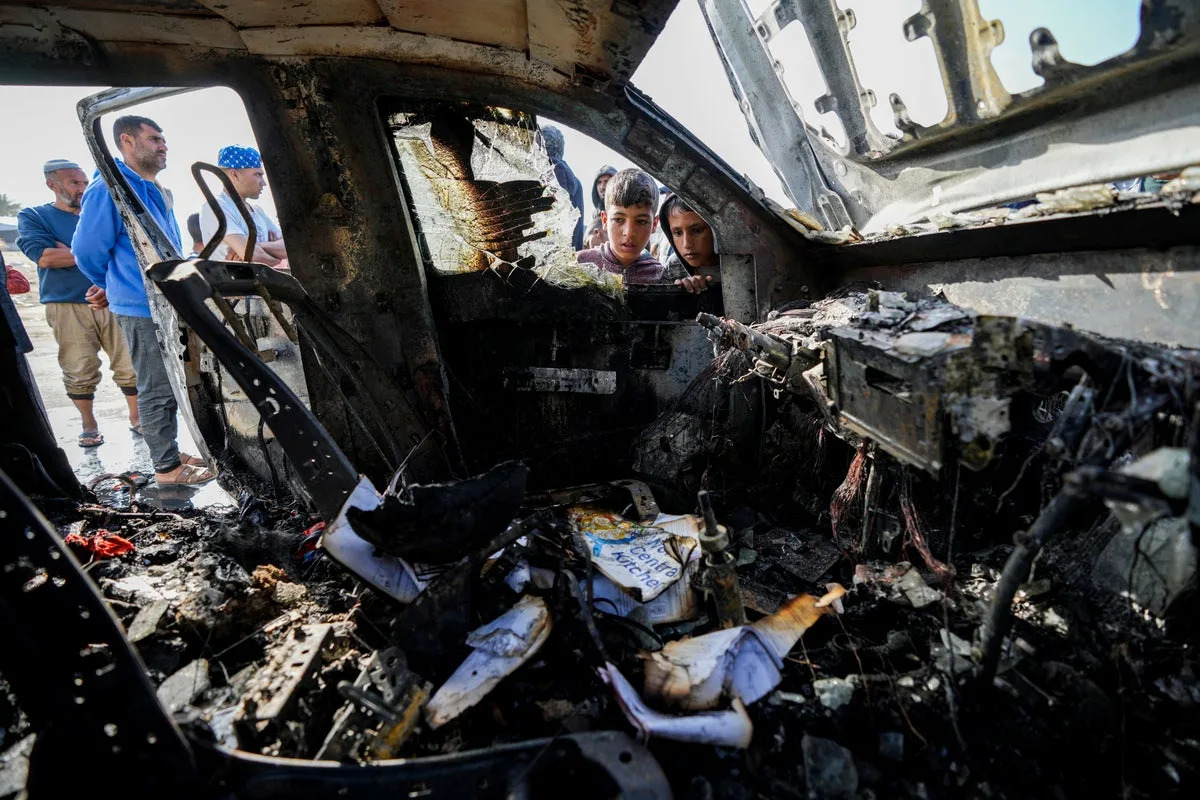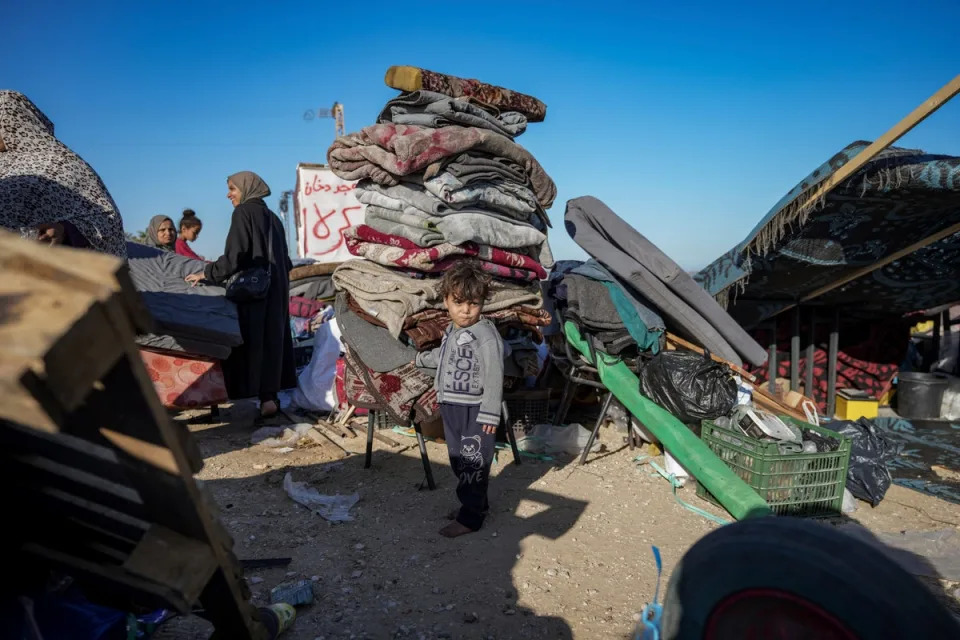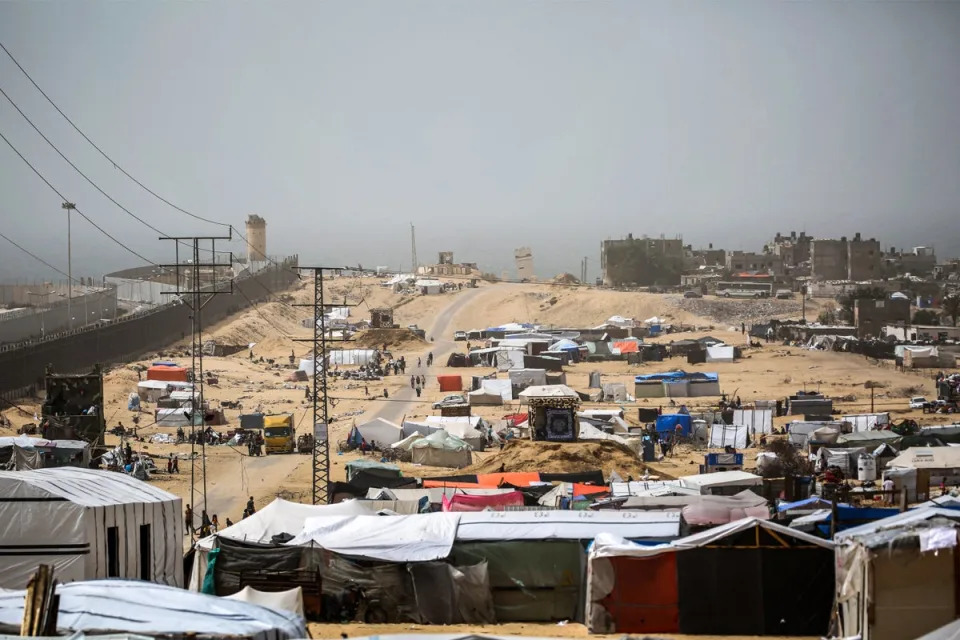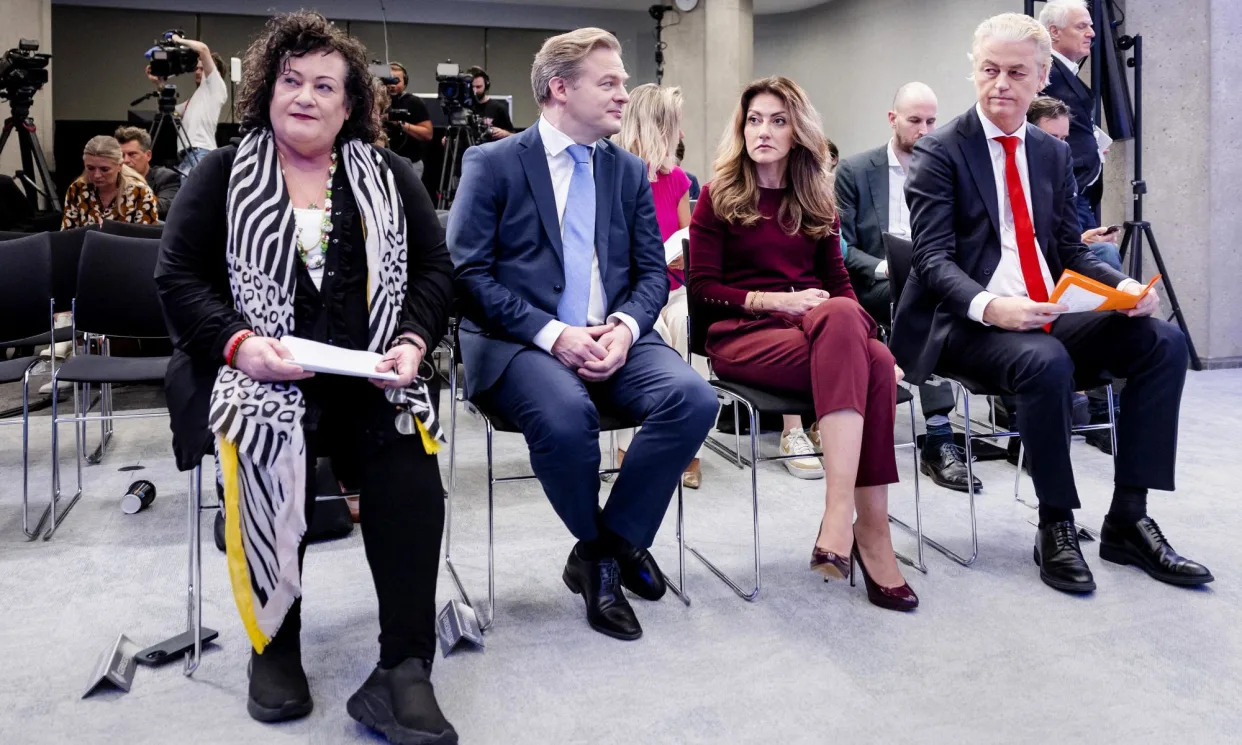Oliver Milman
Fri, 17 May 2024
THE GUARDIAN

Wildfires near Pournari, in Magoula, 25km south-west of Athens, Greece, on 18 July 2023.
The economic damage wrought by climate change is six times worse than previously thought, with global heating set to shrink wealth at a rate consistent with the level of financial losses of a continuing permanent war, research has found.
A 1C increase in global temperature leads to a 12% decline in world gross domestic product (GDP), the researchers found, a far higher estimate than that of previous analyses. The world has already warmed by more than 1C (1.8F) since pre-industrial times and many climate scientists predict a 3C (5.4F) rise will occur by the end of this century due to the ongoing burning of fossil fuels, a scenario that the new working paper, yet to be peer-reviewed, states will come with an enormous economic cost.
A 3C temperature increase will cause “precipitous declines in output, capital and consumption that exceed 50% by 2100” the paper states. This economic loss is so severe that it is “comparable to the economic damage caused by fighting a war domestically and permanently”, it adds.
“There will still be some economic growth happening but by the end of the century people may well be 50% poorer than they would’ve been if it wasn’t for climate change,” said Adrien Bilal, an economist at Harvard who wrote the paper with Diego Känzig, an economist at Northwestern University.
“I think everyone could imagine what they would do with an income that is twice as large as it is now. It would change people’s lives.”
Bilal said that purchasing power, which is how much people are able to buy with their money, would already be 37% higher than it is now without global heating seen over the past 50 years. This lost wealth will spiral if the climate crisis deepens, comparable to the sort of economic drain often seen during wartime.
“Let’s be clear that the comparison to war is only in terms of consumption and GDP – all the suffering and death of war is the important thing and isn’t included in this analysis,” Bilal said. “The comparison may seem shocking, but in terms of pure GDP there is an analogy there. It’s a worrying thought.”
The paper places a much higher estimate on economic losses than previous research, calculating a social cost of carbon, which is the cost in dollars of damage done per each additional ton of carbon emissions, to be $1,056 per ton. This compares to a range set out by the US Environmental Protection Agency (EPA) that estimates the cost to be around $190 per ton.
Bilal said the new research takes a more “holistic” look at the economic cost of climate change by analyzing it on a global scale, rather than on an individual country basis. This approach, he said, captured the interconnected nature of the impact of heatwaves, storms, floods and other worsening climate impacts that damage crop yields, reduce worker productivity and reduce capital investment.
“They have taken a step back and linking local impacts with global temperatures,” said Gernot Wagner, a climate economist at Columbia University who wasn’t involved in the work and said it was significant. “If the results hold up, and I have no reason to believe they wouldn’t, they will make a massive difference in the overall climate damage estimates.”
The paper found that the economic impact of the climate crisis will be surprisingly uniform around the world, albeit with lower-income countries starting at a lower point in wealth. This should spur wealthy countries such as the US, the paper points out, to take action on reducing planet-heating emissions in its own economic interest.
Even with steep emissions cuts, however, climate change will bear a heavy economic cost, the paper finds. Even if global heating was restrained to little more than 1.5C (2.7F) by the end of the century, a globally agreed-upon goal that now appears to have slipped from reach, the GDP losses are still around 15%.
“That is still substantial,” said Bilal. “The economy may keep growing but less than it would because of climate change. It will be a slow-moving phenomenon, although the impacts will be felt acutely when they hit.”
The paper follows separate research released last month that found average incomes will fall by almost a fifth within the next 26 years compared to what they would’ve been without the climate crisis. Rising temperatures, heavier rainfall and more frequent and intense extreme weather are projected to cause $38tn of destruction each year by mid-century, according to the research.
Both papers make clear that the cost of transitioning away from fossil fuels and curbing the impacts of climate change, while not trivial, pale in comparison to the cost of climate change itself. “Unmitigated climate change is a lot more costly than not doing anything about it, that is clear,” said Wagner.


















